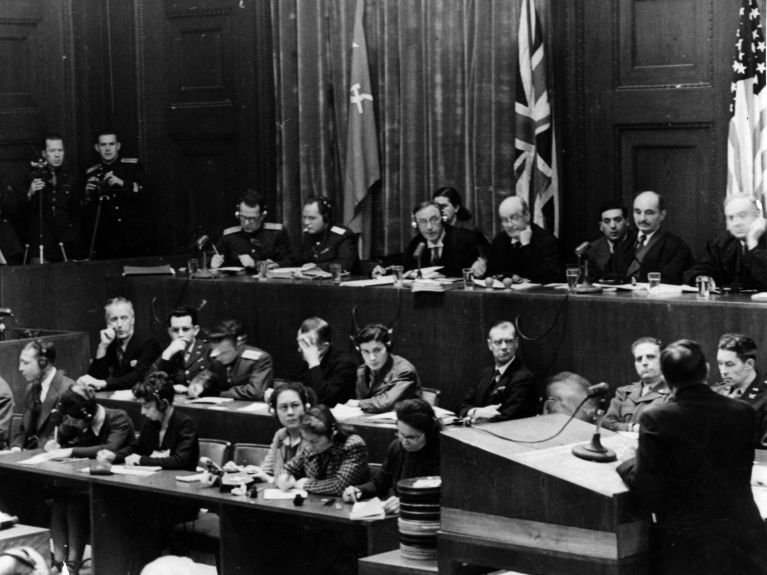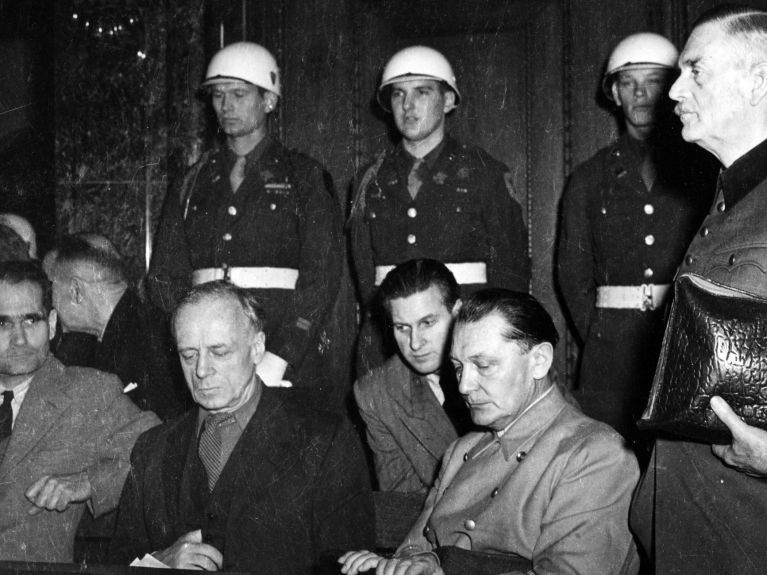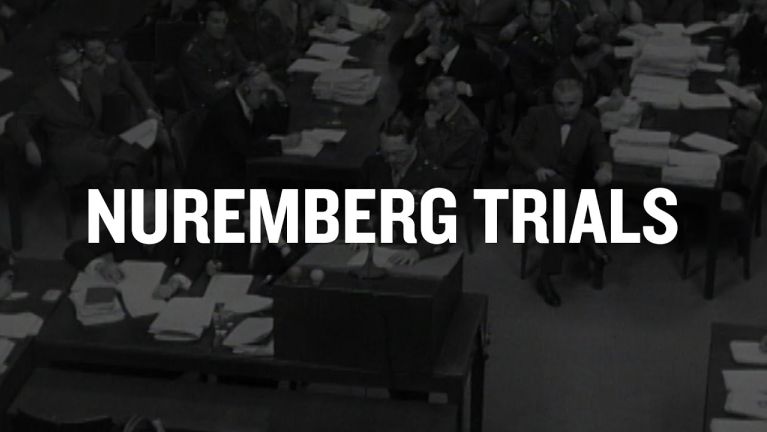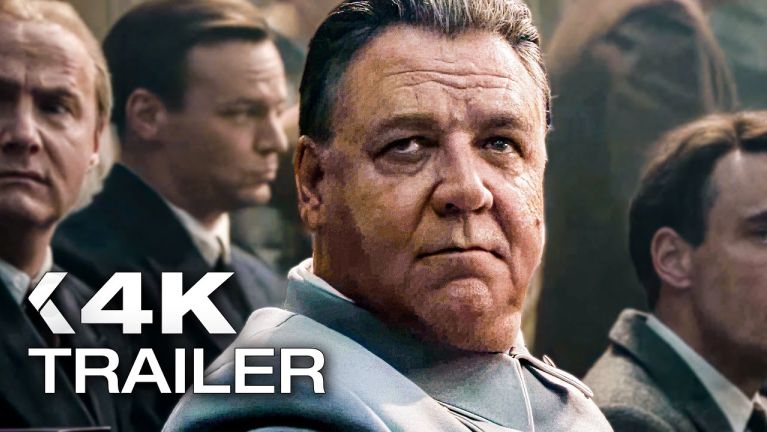80 years of the Nuremberg Trials: When the world passed judgement
The trials of the main war criminals in the Nazi regime began in Nuremberg in 1945. They became the basis for modern international criminal law.

On 20 November 1945 at ten o’clock, Presiding Judge Sir Geoffrey Lawrence raises the gavel in Courtroom 600 of the Nuremberg Palace of Justice. The streets outside lie in ruins, the rubble of the Nazi party rally grounds towering into the grey sky. A tense atmosphere of order reigns in the courtroom. There are 21 men sitting in the dock: former ministers, generals, party functionaries – the political and military elite of the defunct Nazi state.
Among them Hermann Göring, Reich Marshal and second-in-command in the state; Rudolf Hess, Hitler’s deputy until 1941; Joachim von Ribbentrop, Foreign Minister of the German Reich; Albert Speer, Armaments Minister and architect to the regime; and Wilhelm Keitel, Chief of the High Command in the Wehrmacht. Adolf Hitler himself is not on trial – he had taken his own life on 30 April 1945 in the “Führer’s bunker” in Berlin, as did Reich Propaganda Minister Joseph Goebbels and Heinrich Himmler, Minister of the Interior and Reichsführer SS.

All around are interpreters, lawyers, Allied guards, journalists from all over the world. The courtroom is silent as American Chief Prosecutor Robert H. Jackson begins his opening statement. His words, transmitted in four languages via a novel simultaneous translation system, are still considered as fundamental texts of international criminal justice:
“The wrongs which we seek to condemn and punish have been so calculated, so malignant, and so devastating, that civilisation cannot tolerate their being ignored, because it cannot survive their being repeated.”
The birth of international criminal law
The choice of Nuremberg was no coincidence. Once the stage for Nazi mass rallies, the Bavarian city symbolised the ideological core of the regime – and became the stage for justice. The Palace of Justice also had an adjoining prison.
A few months earlier, the four victorious Allied powers – the USA, United Kingdom, France and the Soviet Union – had laid the legal foundations in the London Statute. The charges were crimes against peace, war crimes and crimes against humanity – categories that only took legal shape here in the autumn of 1945.
218 hearing days, 236 witnesses, several thousand evidentiary documents: The trial was meticulous, often gruelling. On 29 November 1945, the prosecution showed a film portraying the liberated concentration camps – this was the most harrowing moment for many in the courtroom.
The defendants’ reactions ranged from defiance to defensiveness to calculation. Göring justified the war as a defensive measure and denied any personal guilt. Hess also showed no remorse. Ribbentrop denied having known about the murder of European Jews. Only Speer admitted moral responsibility.
Dieses YouTube-Video kann in einem neuen Tab abgespielt werden
YouTube öffnenThird party content
We use YouTube to embed content that may collect data about your activity. Please review the details and accept the service to see this content.
Open consent formThe tribunal finally handed down its verdicts on 1 October 1946: Twelve defendants were sentenced to death, including Göring, Ribbentrop und Keitel. Göring evaded execution by committing suicide the night before he was due to be put to death. Hess was sentenced to life imprisonment and died in Berlin-Spandau prison in 1987. Speer was sentenced to 20 years in prison. After his release in 1966, he presented himself as an “apolitical technocrat” who had no knowledge of the Nazi atrocities. Recent research reveals, however, that Speer had early knowledge and was involved in decision-making.
The trial was controversial, for instance among some politicians and lawyers in the USA, with some referring to it as “victor’s justice”. But it set a precedent. Because the Nuremberg Trials were about more than individual guilt. They revealed how state-organised violence arises. The defence lawyers argued that it was a case of “emergency powers” and “reasons of state”. But the tribunal ruled otherwise: There are “crimes for which there can be no higher authority”.
Legacy and present day
The “Nuremberg Principles”, codified in 1950 by the United Nations, still form the basis of modern international criminal law – from the Tribunal for the former Yugoslavia to the International Criminal Court in The Hague. They define individual responsibility for genocide and war crimes. Albeit criminal prosecution does not usually occur.
80 years later, Courtroom 600 is now part of the Nuremberg Trials Memorial, a memorial site and permanent exhibition. In James Vanderbilt’s new feature film “Nuremberg”, Russell Crowe plays former Nazi leader Hermann Göring, while Rami Malek explores the psychological dimension of the trials as an American psychologist.
Dieses YouTube-Video kann in einem neuen Tab abgespielt werden
YouTube öffnenThird party content
We use YouTube to embed content that may collect data about your activity. Please review the details and accept the service to see this content.
Open consent formThe Nuremberg Trials make it clear that law takes precedence over power. This concept seems more urgent than ever at a time when war crimes are once again being documented in Europe, when international law is being violated and international institutions are coming under pressure.




